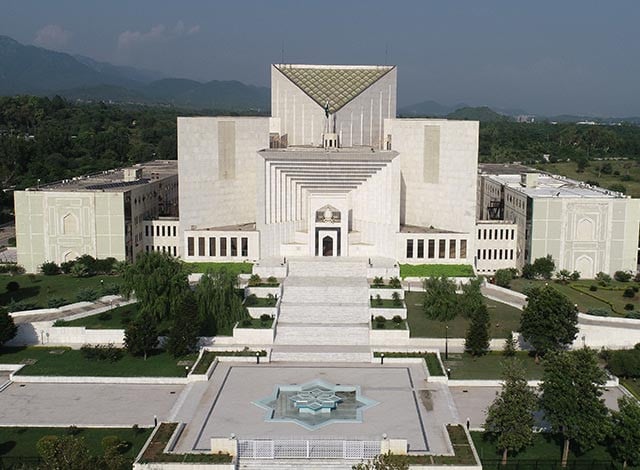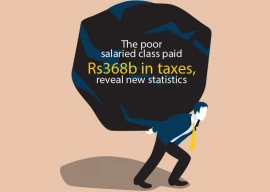
Supreme Court judge Athar Minallah has expressed his desire to see courts working when the country is faced with the imminent threat of a martial law. The SC judge, who is on a visit to the United States, said this while addressing the New York City Bar.
According to Justice Minallah, a television channel is creating an environment for martial law in the country. He, however, did not mention the name of the media outlet.
"I wish the courts had been open on October 12, 1999, when General Pervez Musharraf ousted the elected prime minister [Nawaz Sharif].
"I wish these courts had been open on July 5, 1977 when General Zia-ul-Haq removed an elected prime minister [Zulfikar Ali Bhutto]," Justice Minallah, who is in line to become the country's top judge, added.
Referring to the removal of former prime minister Imran Khan through a vote of no confidence in April 2022, the judge said if Imran was also ousted through unconstitutional means, it would become a trial for the judiciary.
"It would be a test for the Islamabad High Court (IHC) to determine whether it stood firm in upholding the Constitution," added the judge who earlier served as the IHC chief justice.
Last week, on July 19, Fitcha global credit rating agencypredicted a technocrat set-up in Pakistan in case the PML-N government is ousted.
The agency projected that the PML-N led coalition government would remain in power for the next 18 months with no immediate plans for fresh elections.
The incumbent government would continue to implement the reforms mandated by the International Monetary Fund (IMF) that will enable the economy to grow, the report said.
However, Fitch mentioned that political upheaval might affect the economic activities in Pakistan along with the impacts of climate change, including floods and drought.
According to the rating agency, former prime minister Imran Khan was unlikely to get released from jail in the foreseeable future despite getting relief in a number of cases. The agency went on to predict that the next general elections in Pakistan will be held in 2029.
The role of the judiciary in Pakistan has often been criticized for its continual support of military rulers.
The judiciary's involvement began with the Doctrine of Necessity, a principle first invoked by chief justice Muhammad Munir in 1954.
This doctrine provided a legal justification for the dissolution of Pakistan's first Constituent Assembly by then-governor-general Ghulam Muhammad.
The doctrine was later used to validate several military takeovers, including General Ayub Khan's coup in 1958 and General Zia-ul-Haq's martial law in 1977.
In 1958, when General Ayub Khan imposed martial law, the judiciary validated it through the Doctrine of Necessity, emphasizing the need for stability and order.
Similarly, in 1977, when General Zia-ul-Haq overthrew prime minister Zulfikar Ali Bhutto, the Supreme Court, led by Chief Justice Anwar-ul-Haq, endorsed the coup.








-(1)1717678110-0/Kendrick-(1)-(1)1717678110-0-270x192.webp)










COMMENTS
Comments are moderated and generally will be posted if they are on-topic and not abusive.
For more information, please see our Comments FAQ